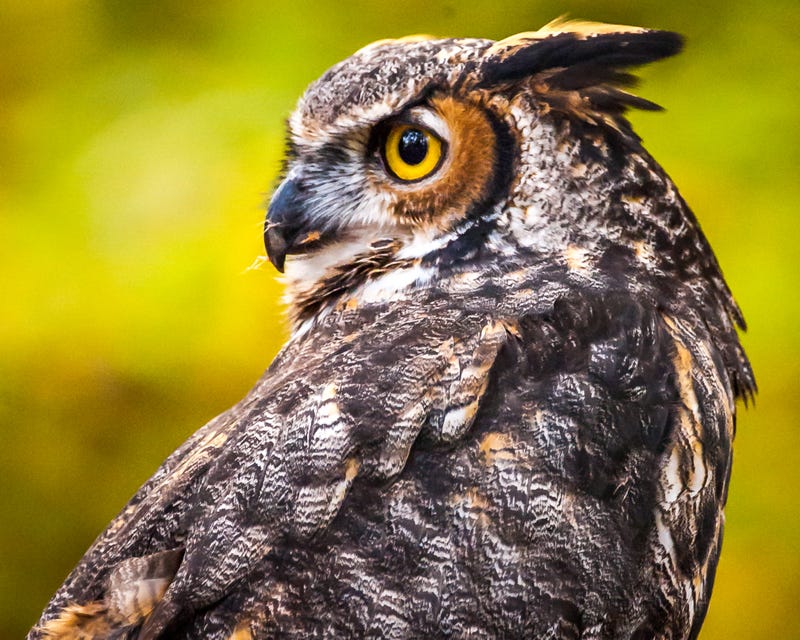
YPSILANTI (WWJ) - A great horned owl recovering from injuries sustained after getting struck by a car in Salem Township is eyeing a return to the wild next month -- and back to his likely mate, rehabilitators say.
As reported by Hometown Life, Alysha Albrecht, director of the Raptor Center of Southeast Michigan, said the magnificent male owl was first brought under her care after he was discovered in need of help by Salem Township native Paul Schmid last month.
Schmid told Hometown Life he was driving home with his family on a recent evening in November when he spotted the raptor huddled, unmoving, on the side of the road near his driveway.
After slowly approaching the injured bird and gathering it up carefully with gloves, Schmid said he began making phone calls which ultimately led to him turning the animal over to Albrecht in Ypsilanti the very next day.
A round of radiographs revealed the bird sustained a broken collarbone and a broken pelvis -- injuries Albrecht believes were the result of being struck by a car.
Without Schmid's intervention and current rehabilitation, the rehabber said the great horned owl wouldn't have survived.
“When they are starving, they take chances, and those chances don’t end well,” she said. “It’s called the wild for a reason—it’s hard out there.”
Albrecht said it is important to make sure the raptor makes his return to the wild as his mate is likely waiting for him. According to the rehabilitator, great horned owls are monogamous and mate for life.
The goal is to release him as soon as possible due to the owl mating season -- which runs now through the end of January -- in order for him to start a family, she added.
“The good news is these breaks can heal,” Albrecht told Hometown Life. “The bad news is we’re on a time crunch, we don’t want her to find another mate and we don’t want another male in his area, because he was doing great there himself.”
Albrecht said it is because of people like Schmid, who are able to get injured wildlife to licensed rehabilitators, that gives these creatures a fighting chance.
“You have to have that enthusiasm to save a wild bird,” she said. “I’m so thankful for our finders. We couldn’t do this without all the people like Paul and his family. First, they saw an injured bird and then they took the time to stop, Google, and find a friend — me. I am grateful because we could not do this work without those people who take the time.”
Albrecht said rehabilitation can be a dangerous time for raptors, which include red-tailed hawks, Cooper’s hawks, Eastern screech owls, great horned owls, barred owls, American kestrels, red shoulder hawks, and turkey vultures. The sooner an animal make their way to the center and recover, the sooner they make their way back home where there are crucial to the local ecosystem.
Schmid said he was only too happy to stop and help, calling the owl a "magnificent animal."
“He was just beautiful, they are incredible birds,” he said. “Looking at and holding them, you appreciate what amazing creatures they are… I so hope we can rehab him. This morning I could hear the other owl hooting. I assume she’s his mate, wondering where her husband is.”
For wildlife in need of care, the Michigan DNR has complied a list of licensed wildlife rehabilitators, listed according to county and animal, here.
Residents in Southeast Michigan who find an injured raptor can conact Alysha Albrecht at 616-443-0120 or email her at alyshamae515@gmail.com.
